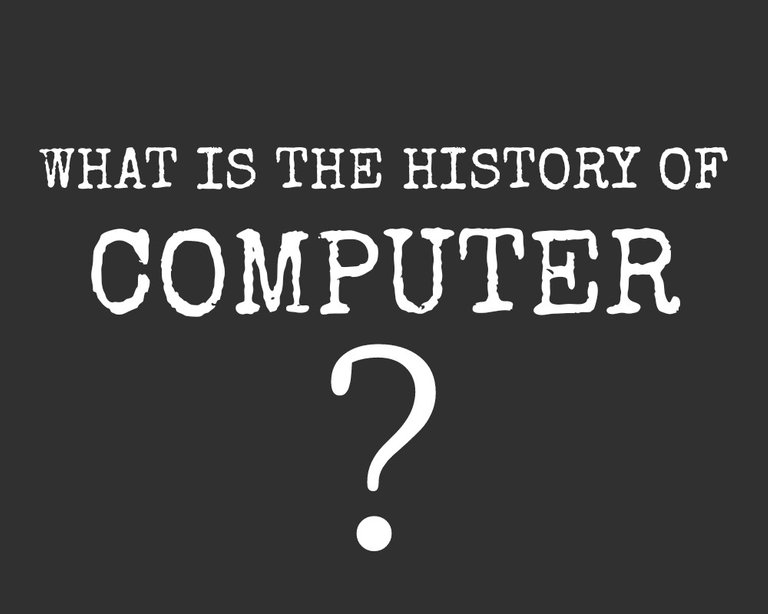
Ever since the man thought of counting, he developed the concept of communication. Hi initial approach an accounting, data computation and their recording was with help of sticks, pebbles or lines on walls of caves. Then he moved towards counting by using ten fingers of his hands, which probably is the basic of present decimal system.
The earliest computing device, which was used by Egyptians as early as 450 B.C, is ABACUS. The Chinese version of ABACUS was a dead on wires counting frame, which is still much used in south east Asia, China and Japan.
The first desktop calculator machine, which is capable to perform various arithmetic operation, was developed as early as 1642, which was pioneered by French scientist BLAISE PASCAL (1623-1622). This calculating machine mainly consisted of gears and wheels for calculation and this machine could perform only two basic operation i.e. addition and subtraction.
A German mathematician GOTTFRIEND LEIBNITZ worked on improving this machine i.e. Pascal’s calculator for performing four basic arithmetic operations (+,-,*,/).
Charles Babbage designed the early computer called difference engine in the year 1822. This could produce reliable tables. He improved this machine and come out with a new idea of Analytical Engine in 1833, which could perform the basic arithmetic functions, which is intended to be completely automatic. This machine used punch cards as input output devices for basic input and output. He is called as “FATHER OF COMPUTERS”.
In 1920, LEONARDO TORES demonstrated a digital calculating machine in Paris.
The concept of punched cards which was used by BABBAGE as I/O media was developed further by HARMAN HOLLERITH in the year 1889. He is the founder of present IBM (International Business Machine) company.
As the demand for punched cards machine increased, there was inadequacy of these machine for scientific computations and this demand led to the development of electro mechanical calculators know as MARK-1, which was the first automatic general purpose digital computer which was able to do three additions per second, for multiplication it took about four seconds and about if took Aiken eleven seconds for division. This machine was designed by Proof. HOWARD AIKEN of hardware university. This was in 1944.
The first electronic, ENIAC(Electronic Numerical Integrator and calculator) was designed in 1946. It has capability to perform about 5,000 calculations per second. This was a huge computer which occupied about 1,500 sq.ft and weighed about 50 tons.
After ENIAC the next development was an electronic computer which was based on JOHN VONNEUMANN”S concept of stored program named as EDVAC (Electronic Discrete variable Automatic Computer) and this was in 1949.
Almost simultaneously with EDVAC of U.S.A , the EDSAC (electronic delay automatic calculator) was developed by British scientists. This machine was capable to do mathematical operations which are executed in matter of a few micro seconds.
Then came in 1951 the commercial version of stored program computer UNIVAC (universal automatic computer), which was first digital computer.
Congratulations @kinkar! You received a personal award!
You can view your badges on your Steem Board and compare to others on the Steem Ranking
Vote for @Steemitboard as a witness to get one more award and increased upvotes!